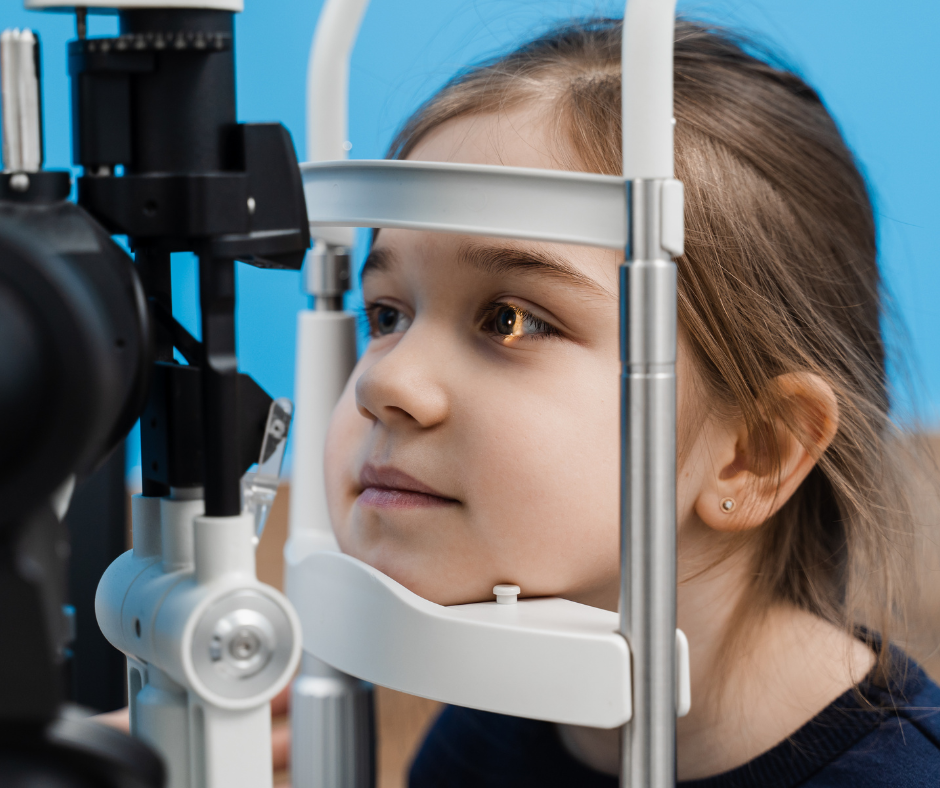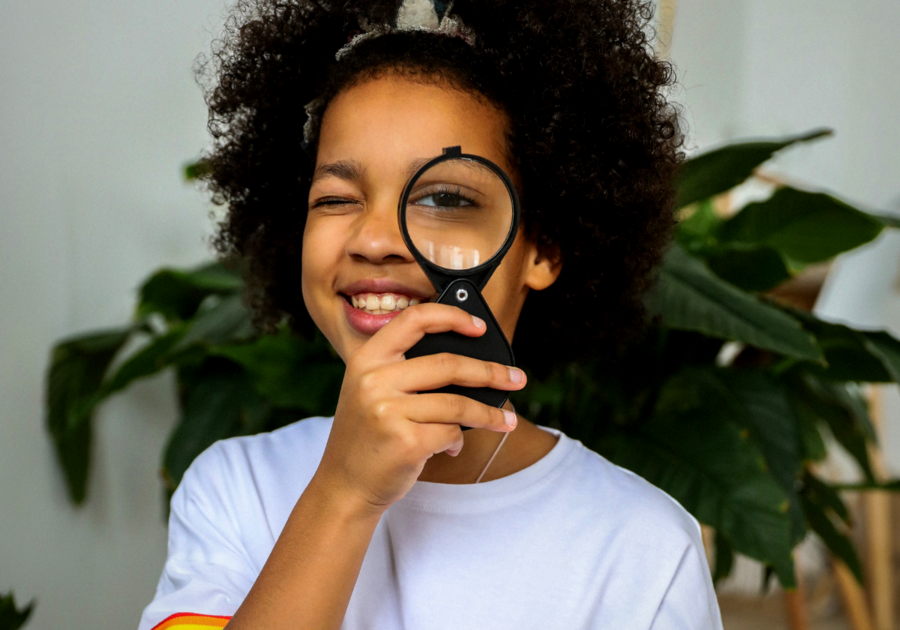With August being the start of school for children everywhere, it is important to make sure their visual health is up to par along with other important medical check-ups and immunizations. Since an estimated 80% of all classroom learning is done through visual mediums, making sure your child’s eyesight is healthy can directly influence their learning ability and future success.
Eye health is super important for kids. After all, how can they enjoy the world around them if their vision isn’t clear? Just like a camera needs a clean lens to take great pictures, our eyes need to be well-cared for to see the beauty in life.
Let’s dive into how you can keep those little peepers healthy and safe!
 |
Understanding Children's Eye Development
Did you know that a child’s eyes develop significantly in their first few years? Just like a flower blooming, their vision takes time to reach its full potential. At birth, babies see very blurred images. By six months old, they can track movement and recognize faces. By age three, most kids have pretty good eyesight. It’s during this time that regular check-ups become crucial.
Regular Eye Exams: A Must
Regular eye exams are essential, just like brushing teeth every day. The American Academy of Ophthalmology recommends the first eye exam by age one, another at three, and then every two years until age 18. These check-ups can catch issues early, like nearsightedness or amblyopia (lazy eye), preventing problems later on.
Common Eye Problems in Kids
Just like how kids can catch colds, they can also have eye problems. Some common issues include:
- Nearsightedness (Myopia): This means they can see close things clearly but struggle with faraway objects. It's like trying to read a sign while driving—frustrating and dangerous!
- Farsightedness (Hyperopia): Here, kids can see faraway things but struggle with close-up tasks, like reading. Imagine trying to read the small print on a menu from across the room!
- Astigmatism: This condition causes blurred vision at all distances. It’s like looking through a foggy window; everything just doesn't seem quite right.
Understanding these conditions helps parents recognize when a child's vision might not be as sharp as it should be.
Protecting Eyes from Digital Strain
In today’s tech-driven world, screens are everywhere. From tablets to smartphones, kids are spending more time than ever staring at devices. This can lead to digital eye strain, which feels like fatigue for the eyes. Symptoms include dryness, headaches, and blurred vision.
The 20-20-20 Rule
To combat this, remember the 20-20-20 rule. Every 20 minutes, kids should look at something 20 feet away for 20 seconds. This simple trick helps relax their eyes and keeps vision sharp. It’s like giving their eyes a mini-vacation!
Sun Safety for Little Eyes
Just as we protect our skin from harmful rays, our eyes need protection too! Kids are more sensitive to light, making them more vulnerable to UV damage. Wearing sunglasses with UV protection is as important as wearing a cap on sunny days.
Choosing the Right Sunglasses
Look for shades that block 100% of UVA and UVB rays. Think of sunglasses as a shield for their eyes, guarding them from the sun’s harsh rays. Make it a fun habit by letting kids pick out their stylish shades!
Nutrition for Healthy Eyes
What’s on the plate can affect eye health too! Foods rich in vitamins A, C, and E, along with omega-3 fatty acids, nourish those little eyes. Carrots, spinach, and fish are great choices. Eating colorful fruits and veggies is like filling up a gas tank for a long road trip—necessary for a smooth journey!
Encouraging Good Eye Habits
It’s not just about check-ups and sunglasses; it’s about habits. Encourage kids to:
- Play outside more often. Natural light is great for eye health.
- Take breaks from screens. Balance is key!
- Avoid rubbing their eyes, which can lead to irritation or injury.
By instilling these habits early, you’re setting the stage for a lifetime of healthy vision.
Conclusion: Keep Those Eyes Bright
Children’s eye health is a crucial piece of their overall well-being. Regular check-ups, protective measures, and good nutrition all play a role in keeping their vision sharp. By being proactive, you’re ensuring they enjoy every vibrant view life has to offer. Remember, those little eyes are amazing tools—let’s help them shine!



